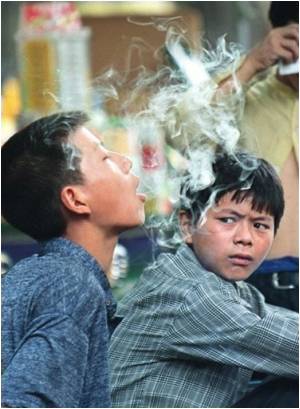
Epidemiological studies have long shown that secondhand smoke is dangerous, but there have never been conclusive biological tests demonstrating what it does to the body at a gene function level, until now.
"Even at the lowest detectable levels of exposure, we found direct effects on the functioning of genes within the cells lining the airways," said Dr. Ronald Crystal, senior author of the study.
Crystal explains that genes, commonly activated in the cells of heavy smokers, are also turned on or off in those with very low-level exposure.
"The genetic effect is much lower than those who are regular smokers, but this does not mean that there are no health consequences," said Crystal.
"Certain genes within the cells lining the airways are very sensitive to tobacco smoke, and changes in the function of these genes are the first evidence of 'biological disease' in the lungs or individuals," he added.
Advertisement
The researchers tested urine levels of nicotine and cotinine-markers of cigarette smoking within the body-to determine each participant's category.
Advertisement
They found that there was no level of nicotine or cotinine that did not also correlate with genetic abnormalities.
"This means that no level of smoking, or exposure to secondhand smoke, is safe," said Crystal.
He further said that these genetic changes are like a "canary in a coal mine," warning of potential life-threatening disease, "but the canary is chirping for low-level exposure patients, and screaming for active smokers."
Crystal said that this is further evidence supporting the banning of smoking in public places, where non-smokers, and employees of businesses that allow smoking, are put at risk for future lung disease.
The study is published in the American Journal of Respiratory and Critical Care Medicine.
Source-ANI












